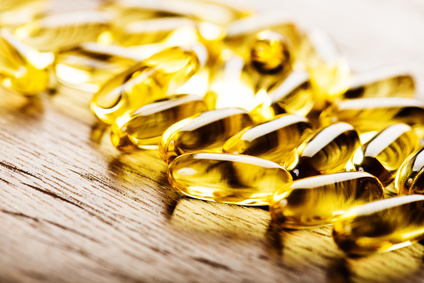Health benefits and conditions improved by supplementing with CoQ10
04/05/2021 / By Virgilio Marin

Coenzyme Q10 (CoQ10) is a chemical that your body produces naturally. It plays an important role in DNA replication and repair, as well as energy production. In order to use CoQ10, your cells convert its inactive form, ubiquinone, into its active form, ubiquinol. However, as you age and are exposed to various pollutants (including medications such as statins), the natural levels produced by your body are often not enough. Deficiency in CoQ10 is common.
Health benefits of Coq10
Take a look at the following health benefits of CoQ10: (h/t to MedicalNewsToday.com)
Fights harmful free radicals
CoQ10 is a powerful antioxidant that scavenges unstable molecules in the body called free radicals. Free radical accumulation can damage the DNA, accelerate aging and contribute to diseases like cancer and heart disease.
Keeps the heart healthy
Normal CoQ10 levels are important for a healthy heart. Your heart contains some of the highest concentrations of CoQ10 in your body. Many heart disease patients have low CoQ10 levels.
Studies show that supplementing with CoQ10 helps prevent heart disease. In a 2018 study involving children with cardiac muscle dysfunction, taking 110 to 700 milligrams (mg) of liquid ubiquinol every day was found to elevate CoQ10 plasma levels significantly and improve heart function.
Another study, this time of adults with heart failure, also found that long-term CoQ10 supplementation is safe and reduces the risk of major adverse cardiovascular events.
Reduces muscle pain from statin use
Statins are cholesterol-lowering medications commonly prescribed by doctors. They can lower your CoQ10 levels, which, in turn, can lead to myopathy or muscle pain.
Fortunately, CoQ10 supplements can help relieve muscle pain caused by statin use. In a 2019 study, people suffering from muscle pain because of statins took either 100 mg of CoQ10 supplement or a placebo every day. After three months, those in the CoQ10 group had lower pain assessment scores than those in the placebo group. The latter group reported no changes in muscle pain.
Alleviates migraine
Chronic migraines are linked to inflammation in a part of the brain called the trigeminovascular system. CoQ10 can alleviate migraines by reducing inflammation in this area.
A 2018 study of women with episodic migraine reported that taking 400 mg of CoQ1o daily helped reduce the frequency and intensity of migraines and lowered the levels of inflammatory biomarkers.
In another 2018 study, researchers assessed five studies on the use of CoQ10 supplements for migraines and found that CoQ10 effectively reduced the duration of migraines compared to a placebo.
Protects against age-related diseases
CoQ10 is extremely beneficial for the elderly. In a 2015 study of elderly adults, researchers found that combining CoQ10 supplementation with the Mediterranean diet helps protect against diseases caused by free radical damage, such as Alzheimer’s disease and Parkinson’s disease.
In another study, older adults who took CoQ10 and selenium supplements for four years reported improvements in vitality, physical performance and overall quality of life. (Related: 7 Health benefits of PQQ, a natural brain-boosting supplement.)
How to boost CoQ10 levels in the body
Though your body produces CoQ10 naturally, CoQ10 levels can decrease due to aging, taking statins, genetic mutations and disorders of the mitochondria (powerhouses of the cell). Taking supplements and boosting your intake of foods with CoQ10 can help elevate your CoQ10 levels.
CoQ10 supplements come in the form of capsules, chewable tablets, liquid syrups and wafers. You can also get CoQ10 from foods like fatty fish, organ meats, nuts, seeds and whole grains.
CoQ10 supplements are generally safe, and most people tolerate them even at high doses. In some cases, however, they can cause minor side effects like nausea, stomach pain, heartburn, fatigue and light sensitivity. They may also interfere with certain medications, such as blood thinners, insulin and some types of chemotherapy drugs. To ensure your safety, consult with a natural health practitioner on how best to take CoQ10 supplements.
CoQ10 is a powerful antioxidant that helps prevent conditions like Alzheimer’s disease, heart disease and gum disease. If you don’t wish to take supplements, you can maintain healthy CoQ10 levels by incorporating foods that contain this coenzyme into your daily diet.
Learn more about the health benefits of CoQ10 at SupplementsReport.com.
Sources include:
Submit a correction >>
Tagged Under:
aging, alternative medicine, antioxidants, brain health, Coenzyme Q10, cognitive health, CoQ10, heart health, migraine, natural cures, natural medicine, nutrients, pain relief, prevention, remedies, supplements
This article may contain statements that reflect the opinion of the author
RECENT NEWS & ARTICLES
ReverseHeartDisease.News is a fact-based public education website published by Reverse Heart Disease News Features, LLC.
All content copyright © 2018 by Reverse Heart Disease News Features, LLC.
Contact Us with Tips or Corrections
All trademarks, registered trademarks and servicemarks mentioned on this site are the property of their respective owners.





















